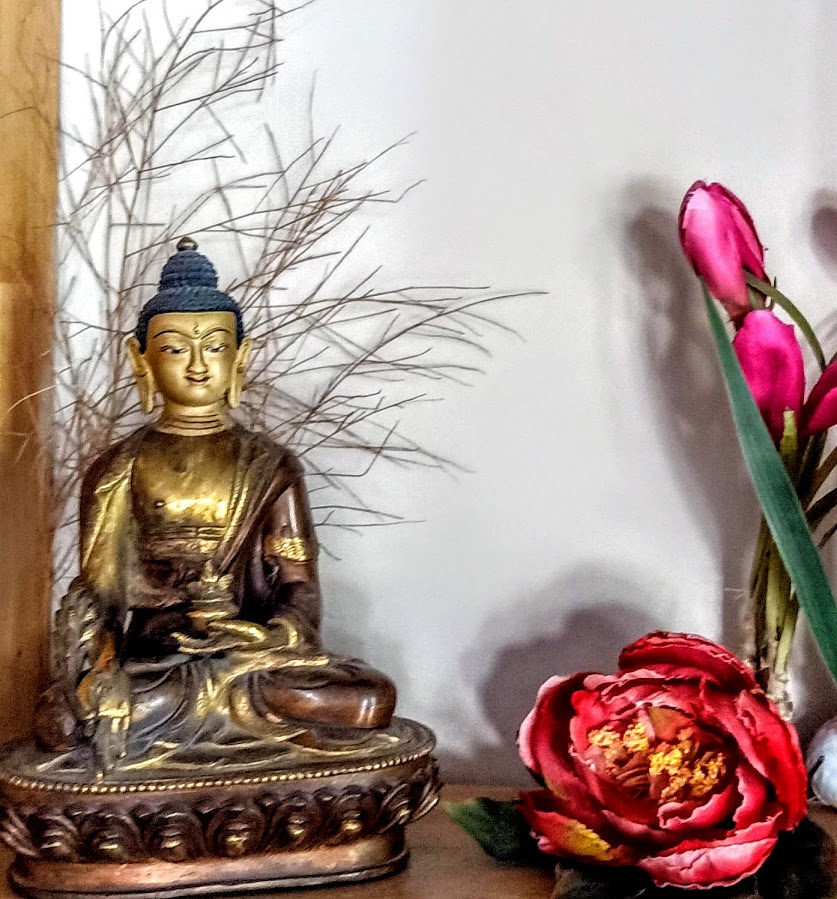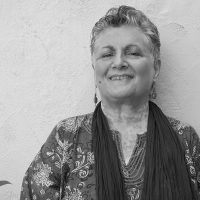Recently, I was on an online Lit Fest Session with two co-authors in a discussion on the recently released book titled The Phoenix Rises: Lockdown Chronicles.
Edited by Amit Dasgupta, a retired foreign service professional in India, the book is a collection of writings—stories, poems, and ruminations—by 45 people, not all who write for a living. I was invited to contribute.
The one-hour session ended with the question to each of us panelists: what do you see as life after the pandemic? Will it be a different world?
As a practitioner of mindfulness for over a decade, during the pandemic and otherwise, I try and focus on the present. So, my response to what life after the pandemic would be like is: I do not know. I am more concerned about the here and now and how I deal with the pandemic every single day.
Does this mean that I do not think about the post-pandemic world? No. It means it is not a priority question or a preoccupation for me. Do I think we will be kinder, more empathetic, more concerned about others? Will we be able to do the things we did before the pandemic? I do not really know. What I am conscious of and concerns me is what is happening right now. Am I being kinder, more thoughtful, more generous, more patient, more understanding? And can I encourage others around me to be this way? These are the questions for me.
I often hear, “When can we go back to normal?” or “When this is all over…” But maybe we will never go back to that “normal,” and maybe this is the new normal. Maybe this will never be over—nobody really knows.
Since the pandemic, there have been and currently are many questions: how did the virus originate, how does it spread, will it plateau or not plateau, are the numbers of people affected going up or down, are the number of deaths due to the virus verifiable, who is vulnerable and who is not, what is the best treatment, and what is the best prevention? Amid the buzz of so-called facts and trends, there is a lot of information and no real information. There is rumour, innuendo, and many conspiracy theories.
The plain truth is we just don’t know.
And can we accept that? All we know for sure is that wearing masks, keeping a physical distance, and washing hands is the best way to stay safe and not spread the virus.
Fear and the Pandemic:
The word I hear most often during the pandemic is fear.
What is the greatest fear? That we or people we love will contract the virus and die? But we will all die one day, and none of us know when that day will come or how we will die. The only guarantee is that we will. So, is it really the fear of death? Or is it the uncertainty about the kind of life it will be? Or both?
Deep down, we all want guarantees. But no one can see the future, not even the futurists. There is only speculation about what the future can be, based on what we know about the present and, to some extent, the past.
This fear of the unknown stems from our need for certainty, although we know from our life experience that nothing is certain. It’s an illusion of certainty. The opposite of certainty is the idea of impermanence. The Buddhist view of impermanence and living in the present, known as mindfulness, can help us deal with our fears.
Norman Fischer, the American poet, writer, and Soto Zen priest, writes:
“Practitioners have always understood impermanence as the cornerstone of Buddhist teachings and practice. All that exists is impermanent; nothing lasts. Therefore, nothing can be grasped or held onto.”
When we do not fully appreciate this simple but profound truth, we suffer, as did the monks who descended into misery and despair at the Buddha’s passing. When we do, we have real peace and understanding, as did the monks who remained fully mindful and calm.
Mindfulness is a practice that keeps us in the present by focusing on the here and now. With this practice, we can prepare for the future without getting consumed by our plans. Often, we either do not plan at all, or we get caught up in obsessive planning because we fear the future and its uncertainty.
The Origins of Fear:
We inherit fear.
Thích Nhất Hạnh, the Zen Buddhist monk and teacher says that our original fear is not just from our own birth and childhood; the fear we feel comes from both our own and our ancestors’ original fear. Our ancestors suffered from hunger and other dangers, and there were moments when they were extremely anxious. That kind of fear has been transmitted to us; every one of us has that fear inside. And because we suffer from that fear, we make the situation worse. We worry about our safety, our job, and our family. We worry about external threats. Even when nothing bad is happening, that does not prevent us from feeling fear.
Thich Nhat Hanh, in his book Fear: Essential Wisdom for Getting Through the Storm, writes:
“When you are truly anchored in the present moment, you can plan in a better way. Living mindfully in the present does not preclude making plans. It only means that you know there is no use losing yourself in worries and fear concerning the future. If you are grounded in the present moment, you can bring the future into the present to have a deep look without losing yourself in anxiety and uncertainty. If you are truly present and know how to take care of the present moment as best you can, you are doing your best for the future already.”
In some ways, we are presented with the past, present, and future as a continuum.
If we are mindful about our past, we can deal with the present and the future. Thinking about the past with regret and sorrow is not mindfulness. If we are mindful of the present, we can bring the past back to the present moment and have a deep look. We can, then, examine the past and the future, while learning from the past and planning for the future in the best way if we are grounded in the present moment.
Learning from the Pandemic:
The pandemic has forced us to come face-to-face with ourselves. Locked down in our homes, shut out from jobs, work, and public spaces, we have been forced to seek shelter in our homes. Children are schooled online or not at all, and parents, especially women, find it difficult to cope with the multiple responsibilities of keeping home and family together. Men, who normally work outside the home, are now finding themselves in a home and routine they find challenging.
It has forced us to think about what we really need, what is important, and what we can live without. If we put aside our anger, impatience, fear, and despair, we just might discover ourselves in a way we may not have been able to.
Living mindfully, the lockdown is an opportunity to see the world with new eyes, appreciating all that we took for granted—family, friends, jobs, institutions, and the service industry—those who bring us our food, collect the garbage, and keep our streets and neighbourhoods clean.
With masked faces, washed hands, and physical distancing, maybe we can create a better world, better than the one we have now, as a post-pandemic world. And we can make it happen. It is up to each of us.
That is my hope. What is yours?












Read 2 comments and reply